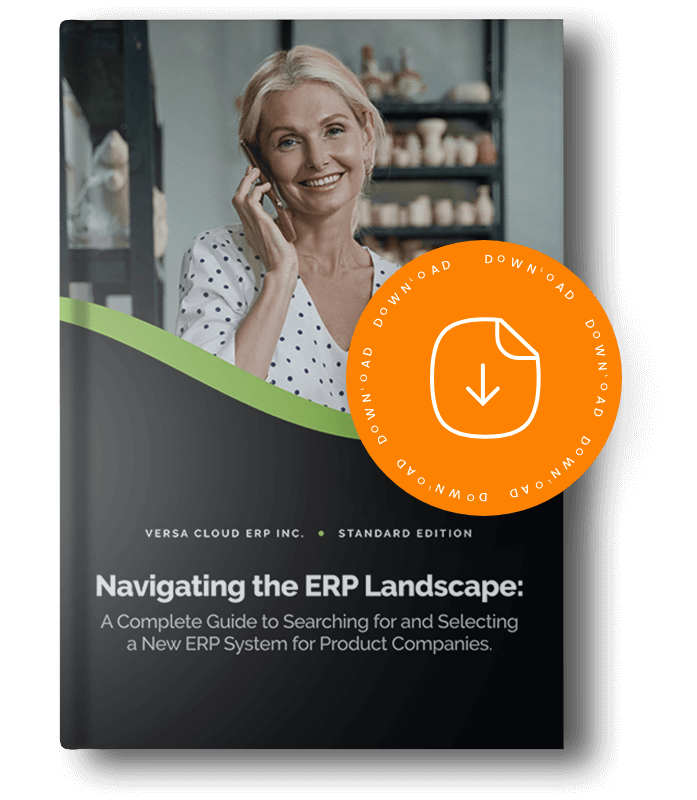With fast-paced and rapid changes global technology landscape, small and medium-sized businesses (SMBs) depend on their Enterprise Resource Planning (ERP) systems to manage their critical business operations, such as finance and inventory management. These ERP systems are, after all, their central nerve center. As more enterprises adopt interconnected ERP systems, it can sometimes create more chances for consequences associated with cyber-depth threats, such as leaking sensitive data or invalidating the transactions themselves. Given that the small and medium-sized enterprise (SME) / Small and medium-sized businesses’ (SMB) often operate a robust security infrastructure, this is noticeably concerning.
With these challenges now part of the everyday conversation about business technology, many businesses are looking to capitalize on an emerging technology that is far more than cryptocurrency: blockchain. For many, blockchain is merely thought of in relationship to Bitcoin or cryptocurrency, but it is making a big impact far beyond digital currency. Blockchain’s ability to enhance security of and provide transparency into ERP systems has received plenty of momentum, motivation and attention lately, and for good reason. In this article, you will understand the current emergence of blockchain in how SMBs are strengthening their ERP platform, differentiate the benefits, and recognize the implications of adopting blockchain.
What Does Blockchain Actually Mean?
Let’s start with the basics. Blockchain is a digital ledger that records transactions from all over a network of computers. Instead of the digital ledger being stored in one location, the data is distributed and secured through the network of nodes (computers). This makes the blockchain powerful because it’s hard to tamper with. Every piece of data (i.e., “block”) is linked to its predecessor using cryptography, creating a “chain” of blocks that is practically impossible to manipulate. You would have to change every ‘block’ in the chain to change it.
Because of the inherent structure of blockchain, it is also good for protecting sensitive information. Every transaction can be verified by the network before added, which cuts out the need of a central authority altogether and makes changing data nearly impossible.
Why ERP Systems in SMBs Are at Risk
Before we look at how blockchain can offer greater security for ERP applications, it’s important to recognize why ERP systems are quite vulnerable in the first place, especially for small businesses.
1. Centralized Systems: Most ERPs utilize a centralized database, which means the company is storing all of its data in one location. If hackers can compromise that database, they will have access to everything from payroll information to customer orders.
2. Old Technology: Some SMBs use an old ERP system, that has not been updated for years. These systems will lack many, if not all, of the security features of the modern ERP systems.
3. Insider Threats: Threats do not only come from outside. Employees can access sensitive data and abuse it, either on purpose or by accident. Whether it’s mishandling financial data or leaking information about customers, the outcome is the same; a breach of trust and security.
4. Limited Resources: Unlike larger organizations, smaller-based SMBs lack a dedicated full-time cybersecurity team to monitor the risks. The budget and HR allocations allow for security issues to go unrecognized until it is too late.
How Blockchain Enhances ERP Security for SMBs
Blockchain addresses many of the vulnerabilities mentioned above through features that make ERP systems not only more secure but also more efficient.
1. Tamper-Proof Audit Trails
Once information is added to a blockchain, it cannot be changed without altering every block that follows. This creates an immutable trail of all activities—every update, transaction, and modification is recorded permanently.
For businesses, this is a game-changer. With a blockchain-enabled ERP, every action can be traced back to its origin, making it easier to detect fraudulent activity or data manipulation.
2. Distributed Architecture
A centralized system is a single point of failure. Blockchain, on the other hand, operates on a decentralized model. This means that even if one node in the network is compromised, the rest remain unaffected. The redundancy built into this system makes it far more resistant to attacks.
3. Encryption and Access Control
Blockchain encrypts data using advanced public and private key systems. This makes it extremely difficult for unauthorized users to view or alter data. Even if someone does get access to the system, without the correct cryptographic keys, the data remains inaccessible.
4. Smart Contracts for Automation
Smart contracts are pieces of code embedded in the blockchain that automatically execute predefined actions when specific conditions are met. In an ERP environment, this can be incredibly useful.
Imagine a scenario where a supplier is paid automatically once a shipment is received and verified. Or inventory levels that are automatically updated when stock is moved. Smart contracts help reduce human error, speed up processes, and ensure consistency.
5. Data Transparency and Traceability
For industries like manufacturing or food distribution, being able to trace every step in the supply chain is essential. Blockchain provides full visibility into the lifecycle of any transaction or product.
This not only helps in maintaining quality and compliance but also builds trust with customers and partners. When data can be independently verified by anyone in the network, transparency becomes a built-in feature of the system.
6. Real-Time Authentication
Because blockchain operates across a distributed network, it enables real-time verification of user access and permissions. Rather than relying on centralized user databases that may be outdated or incorrectly configured, blockchain ensures that only those with verified credentials can access specific data or functions.
Real-World Examples of Blockchain in ERP for SMBs
These are all actual use cases of blockchain in ERP for small businesses in different industries.
• Manufacturing: If a small electronics manufacturer uses blockchain to track the movement of raw materials from the point of origin, it will allow them to confirm that raw materials are being ethically sourced and delivered on time. If there is an issue—if they received a defective batch of parts—they can send a request back and track it back to its origin.
• Retail and E-Commerce: In online retail and e-commerce, using blockchain allows customers’ transactions to be secured the same way. And we can process returns in the same way too. The transaction could go off of a block chain to have it verified that the customer returned the item. Blockchain helps to reduce chargebacks and fraud—and build customer trust.
• Logistics and Delivery: For a delivery-based service that operates, in particular, internationally, blockchain creates an auditable trail of shipping and customs data. Blockchain provides evidence that the packages were not tampered with as they passed through customs and even evidence of current times recorded for delivery.
What’s Holding SMBs Back?
While blockchain has its benefits, its adoption in the SMB space has some issues.
1. Initial costs and complexity: Getting a blockchain network up and running is costly and complex. However, blockchain-as-a-service (BaaS) is one way to address this issue, with their BaaS offerings, Microsoft Azure, and IBM are offering modular blockchain services, and are designed for business use, thus making it easier to utilize this technology by removing the need for custom development.
2. Lack of information and expertise: Many business owners do not yet fully understand what blockchain is capable of doing. If business owners cannot find internal staff with expertise, or a consultant, we find them reluctant to adopt something they do not understand.
3. Fragmentation of regulatory framework: The laws on blockchain are fragmented and evolving. Companies also must be aware of the laws when dealing with customer data, especially if conducting business across international borders.
4. Scalability: Not every blockchain solution is scalable as it pertains to workability. In many high transaction environments, lengthy processing times or the cost of storage can become burdensome. As newer blockchain methods like sidechains as well as off-Chain processing emerge, managers are redefining the factors of transaction security versus transaction speed.
What the Future Looks Like for ERP and Blockchain
As blockchain matures, it will likely become an integral part of ERP architecture, especially for businesses that value data integrity and security.
Here are a few trends we can expect:
- BaaS Will Grow: More cloud providers will offer affordable, plug-and-play blockchain solutions that integrate directly with existing ERP systems.
- Tighter ERP Integration: ERP vendors are already working to incorporate blockchain features into their platforms—expect this to become standard in the next few years.
- AI + Blockchain Fusion: Combining blockchain’s auditability with AI’s decision-making capabilities could unlock powerful insights and automation.
Unlocking the Truth: FAQs on Blockchain-Driven ERP Security
In what ways does blockchain increase ERP data security for small and mid-sized companies?
A block chain is a type of ledger that is decentralized and tamper-proof, which means that it is nearly impossible for anyone to make changes to the data without authorization. By using a block chain, ERP providers can ensure that their customers have a much greater degree of data integrity and reduced risk of internal or external breaches.
Is blockchain integration with ERP systems affordable for SMBs?
Yes, many ERP providers are offering scalable blockchain-based features tailored to SMB budgets. It’s often more cost-effective in the long run by reducing fraud, compliance risks, and manual errors.
Will integrating blockchain slow down my ERP operations?
Modern blockchain solutions are optimized for performance. When implemented correctly, they run seamlessly in the background, enhancing trust and transparency without compromising speed or system usability.
Which industries realize the most benefits from the addition of blockchain technology to ERP systems?
Industries that have many links in the supply chain or that must meet compliance requirements—especially manufacturing, retail, healthcare, and logistics industries—realize the greatest benefit from conducting business with blockchain-enabled ERP systems because they can provide more traceability, audit trails, and security.
Conclusion
Blockchain has evolved from a marketing term, to a way for many businesses to secure their most important asset. For SMB’s, the resources may be scarce, but the need is ever-evolving and high; using blockchain gives businesses a way to secure their resources with enterprise level protection without having to build from the ground up.
Blockchain can leverage ERP systems architecturally decentralized storage, immutable records and smart contracts in a more meaningful and measurable way. Although there are always hurdles to adoption, we continue to make progress as technology matures.
Blockchain is changing our thinking about security in ERPs. For small, medium and emerging businesses, time to consider how Blockchain can enhance your digital security solutions.
Take the First Step Towards Transformation
Effectively manage your financials, multiple channel inventory, and production workflows with our award-winning ERP.
Let Versa Cloud ERP do the heavy lifting for you.
Do Business on the Move!
Make your businesses hassle-free and cut the heavyweights sign up for the Versa Cloud ERP today!!
Join our Versa Community and be Future-ready with us.









